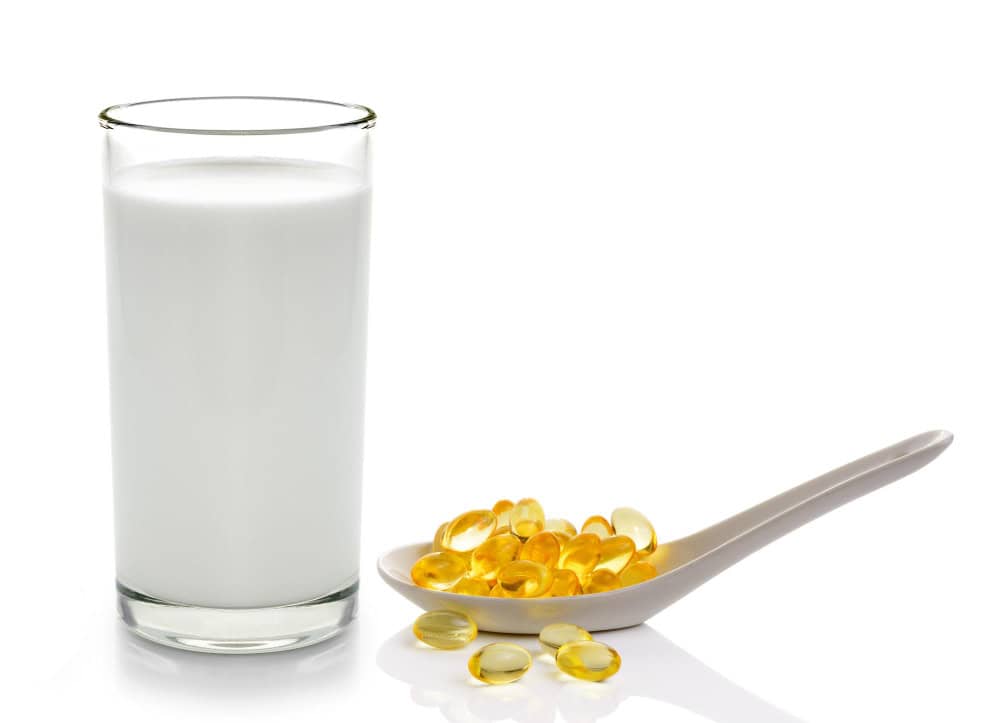
Imagine you’re 7, getting ready for school in a rush, and your mother is running behind you with a glass of milk to finish. Since childhood, we’ve been told milk is the ultimate natural health drink. And its richness in calcium and protein lends some truth to this. Many of us take milk along with supplements for better absorption n. However, for certain supplements, this might not be the best idea. In fact, it can reduce their effectiveness but can actually do more harm than good. Join us as we list down 5 supplements that you just shouldn’t pair with milk, so the next time you’re taking these, you are better informed.
Why Supplements?

With busy lifestyle routines, dietary gaps, fitness goals, or even nutritional deficiencies, many people are not able to get all the essential nutrients required for optimal body function through food alone. That’s where dietary supplements come in handy. Supplements are products that aim to improve the nutritional value of the diet. Typically, they include botanicals such as herbs, minerals, vitamins, amino acids, and enzymes. Supplements come in various forms, including tablets, capsules, powders, and liquids. Certain dietary supplements have the potential to enhance your overall well-being and lower your chance of developing certain illnesses.
Supplements You Should Never Pair With Milk

1. Iron Supplement
Iron is an essential mineral for red blood cells, which transport oxygen throughout the body. Dietary intake is sufficient for most people. Others, however, can be vulnerable to low iron levels, which can lead to health problems such as anemia. But while taking an Iron supplement, make sure you are not taking it with milk or other dairy products. Milk contains calcium, which prevents iron from being absorbed, so taking iron supplements like ferrous sulfate, fumarate, and gluconate with it may result in decreased absorption. Calcium in milk binds to iron, making it difficult for the body to absorb.
2. Zinc
Zinc is an important mineral that plays a role in several functions, such as immunity, healing, and cell growth. Both zinc and calcium compete for absorption in the gut. Due to this competition in the absorption processes with zinc, calcium found in milk can make it more difficult for zinc to be absorbed by the body. If you take zinc with milk, your body will absorb less of it. Thus, while taking zinc supplements, avoid milk of any kind, whether it is dairy, almond, soy, or any other type.
3. Magnesium
Magnesium is another mineral that may be deficient in your diet; you can supplement with it, but avoid it with milk. Lactose, which is abundant in milk, can reduce the absorption of magnesium and renal excretion if it is hydrolyzed. Additionally, while calcium and magnesium are both necessary minerals, consuming both at the same time reduces the absorption of magnesium. It depends on the ratio; as calcium consumption increases, magnesium absorption may become more difficult.
4. Calcium
Yes, you read it right! This may sound odd, as why avoid milk with calcium, isn’t the whole point to get more calcium? The answer is that double is not always better. Calcium supplements consumed with milk or cheese may exceed the mineral’s required intake and compete internally. It has the potential to overload your internal system with calcium, more than it can absorb. At the same time, it can also hinder the presence and absorption of other minerals. Furthermore, consuming too much calcium may result in undesirable side effects, including kidney stones. For the best outcomes, spread out your calcium consumption and avoid mixing the supplement with milk.
5. Multivitamin
Multivitamins are a blend of many different vitamins that are commonly found in meals and other natural sources. Taking multivitamins on a daily basis can help us make up for nutritional deficiencies and improve our general health. They provide a handy way to meet your body’s daily dietary requirements, ensuring you get the vitamins and minerals you require. Many people take multivitamins daily with breakfast next to a glass of milk. Meanwhile, some nutrients in multivitamins like fat-soluble vitamins A, D, E, and K can benefit from being taken with milk as it has fat . However, the presence of calcium and certain proteins in milk can negatively impact the absorption of minerals and vitamins in the multivitamin supplement.
Final Thoughts
Making the correct supplement consumption choices involves more than just what’s in the bottle; it also involves what goes into your glass. When consumed on its own, milk can be beneficial, but not all supplements work well with it. Dairy’s calcium, proteins, and lipids can fully or partially inhibit the absorption of iron, zinc, magnesium, and other essential nutrients and medicines.
Their interaction mostly comes down to how these nutrients interact with milk and its components. In most cases, their absorption is hindered by the calcium present in milk. By making smart choices such as making gaps in their intake, choosing the right time, and pairing these supplements wisely, you can ensure that you reap their full rewards. Taking your supplements on an empty stomach with plain water is the safest and effective method. If you have a dairy craving, just make a buffer by delaying your essential daily supplement by two to four hours.
Moreover, another important thing to remember while starting a new supplement is to always consult a medical professional and take into consideration any known allergies or health conditions. Talking to a professional will not only help you choose the right supplement for your body but also help you avoid any unwanted side effects.
FAQs
1-Can I take dietary supplements with milk?
The answer is that there is no one-size-fits-all; it can be good with some supplements and not others. It is always best to take professional advice.
2-Can I take a multivitamin with milk?
Since calcium and some milk proteins might obstruct the absorption of important minerals like iron and zinc, it is not advised.
3-Are all types of milk a problem, even plant-based?
Yes, considering that calcium is added to a lot of plant-based milks. The same absorption problems can arise as with dairy milk.
4-What is the best drink to take supplements with?
Unless a doctor instructs you otherwise, plain water is the safest and most dependable option for maximizing the absorption of the majority of supplements.
5-How should I wait before taking a supplement if I had a glass of milk?
To ensure the best absorption, wait at least two hours after consuming milk or other dairy products before taking your supplement.
(The article is written by Ehsan Siddiqui, Team Lead, Clinical Health & Content and reviewed by Monalisa Deka, Senior Health Content Editor)
Recommended Reads
7 Fish Oil Benefits For Heart Health
8 Amazing Health Benefits of Omega-3 Capsules